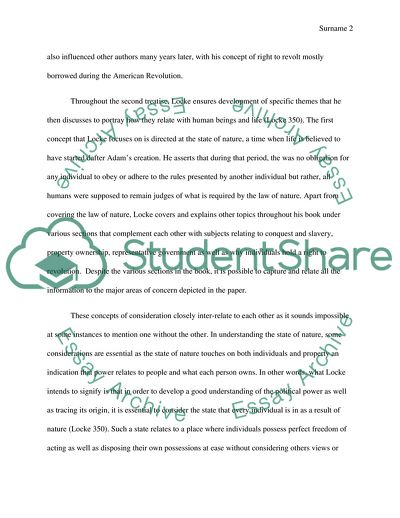Cite this document
(Political Theory- John Locke, Second Treatise of Government Case Study Example | Topics and Well Written Essays - 2750 words, n.d.)
Political Theory- John Locke, Second Treatise of Government Case Study Example | Topics and Well Written Essays - 2750 words. https://studentshare.org/politics/1869958-introduction-to-political-theory-essay-on-a-book
Political Theory- John Locke, Second Treatise of Government Case Study Example | Topics and Well Written Essays - 2750 words. https://studentshare.org/politics/1869958-introduction-to-political-theory-essay-on-a-book
(Political Theory- John Locke, Second Treatise of Government Case Study Example | Topics and Well Written Essays - 2750 Words)
Political Theory- John Locke, Second Treatise of Government Case Study Example | Topics and Well Written Essays - 2750 Words. https://studentshare.org/politics/1869958-introduction-to-political-theory-essay-on-a-book.
Political Theory- John Locke, Second Treatise of Government Case Study Example | Topics and Well Written Essays - 2750 Words. https://studentshare.org/politics/1869958-introduction-to-political-theory-essay-on-a-book.
“Political Theory- John Locke, Second Treatise of Government Case Study Example | Topics and Well Written Essays - 2750 Words”. https://studentshare.org/politics/1869958-introduction-to-political-theory-essay-on-a-book.


